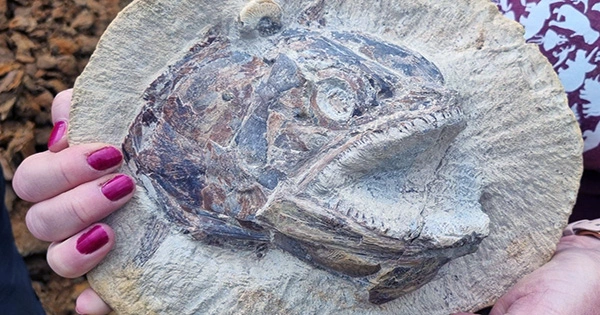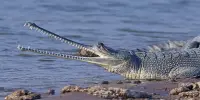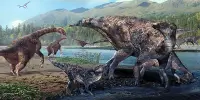In addition to a stomach, colon, and liver, the remnants of an ancient, jawed fish also contained the oldest heart ever found by scientists. The fish organ’s 380 million-year age comfortably beats prior records by 250 million years and is illuminating the development of even human bodies.
It originated from the extinct group of armored fish known as arthrodires, which swam between 419.2 and 358.9 million years ago. Despite having ancient roots, a few of its organs have been found, demonstrating that its body anatomy wasn’t all that different from sharks in existence today and indicating the early stages of their evolution.
Professor Kate Trinajstic, principal researcher from Curtin’s School of Molecular and Life Sciences and the Western Australian Museum, stated in a release that the fossil evidence suggests there was a wider leap between jawless and jawed vertebrates than is typically considered.
“Like sharks today, these fish physically carry their hearts in their jaws and under their gills.”
The specimen’s age is extraordinary, but it’s also noteworthy because it was preserved in its 3D shape, a fact that the researchers weren’t fully aware of until they were scanning the object.
“I recall we were all gathered around the computer when we saw we each had a heart; we honestly couldn’t believe it. We were ecstatic because it was one of those wonderful moments when we immediately felt we had something truly important and unique. I can’t even begin to express how incredibly astounded I was to discover a 3D and well preserved heart and other organs in this old fossil as a palaeontologist who has studied fossils for more than 20 years.
The heart is astonishingly well-preserved and has two chambers, with the smaller one sitting on top. Researchers were amazed by how advanced the heart was for such an early vertebrate. It adds more academic value by including a stomach, intestine, and liver, demonstrating how similar their anatomy was to our own.
Trinajstic stated, “We have found the oldest three-dimensionally preserved heart from a jawed fish, which provides new insight into the development of our own bodies. This amazing find reveals details about our 380 million-year-old forebears.
Trinajstic is looking forward to more fossil offal in the future.
We’ll keep looking, she said, adding, “I’d love to be able to uncover a fossilized brain.”















